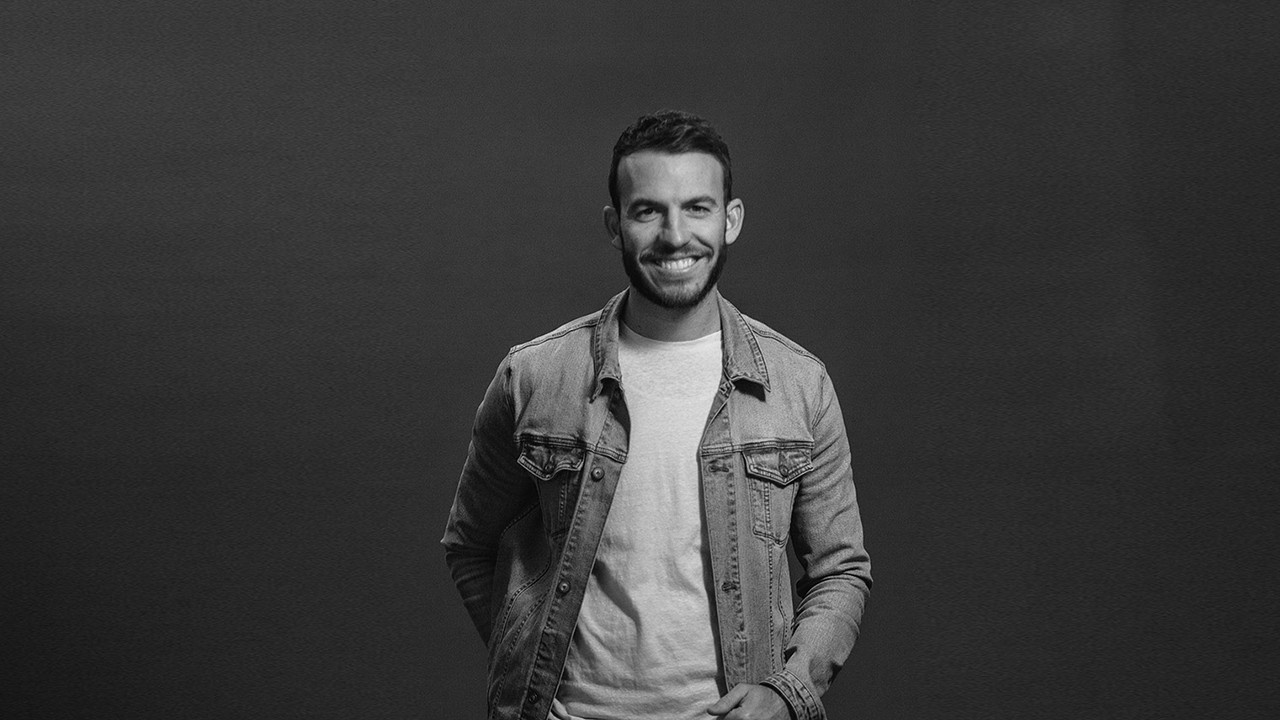Leading With New Eyes: From 'blind guides' to 'disruptive saints' in a post-Christian world

A few years ago, I had an eye surgery that didn’t go as planned.
Now for the record, I’m one of those people who gets unreasonably squeamish about eye stuff. My mom lost an eye when she was five, and I guess I’ve always had this underlying belief that it was only a matter of time until I would lose one of mine. So naturally I was a bit terrified by the news that they would have to cut into my eye in order to remove a cataract.
But the surgeon told me the procedure was pretty straightforward and the cataract, which had been my companion since birth, really needed to go. (If you don’t know what a cataract is, it’s essentially a distortion that develops on your lens, and the only remedy is to cut out the lens.)
So I had the surgery and the fogged lens was exchanged for an artificial replacement. But two days later, as I was preparing to leave town with my kids and wife, I discovered an issue: my eye wasn’t dilating, and that didn’t seem normal. Within hours of discovering the lack of dilation, I found myself lying on an operating table, fully awake while the surgeon performed an emergency procedure to stitch up my eye. Thanksgiving was canceled that year.
Over the next few weeks, I ended up visiting multiple eye experts and having two more procedures because when I looked through my right eye, the familiar fog still darkened and clouded my sight. It was as if the cataract was still there!
You could say that I had good reason to be upset. I had spent a lot of money, missed several days of work, experienced the most excruciating pain of my life and taken drugs I’d never even heard of before, yet I wasn’t able to see clearly.
I needed answers, so I met with the cataract surgeon. But he simply looked at me and said, “Addison, your lens couldn’t possibly be clearer. I can’t do anything else for you. The problem is your entire life you’ve seen through a fog, so your brain is still convinced that the cataract is there.”
I don’t always look for sermon illustrations, but this one was hard to miss, even through a fogged lens.
Many of us Christ-followers find ourselves in a similar struggle. We know we’re saved, loved, forgiven, accepted. For the most part, we believe we have new life now, yet it seems like we’re still viewing God, ourselves and this world through a fogged lens, unable to identify and address the real issues of our day and left to flounder in the symptoms of very real brokenness.
Jesus would often lament over people’s lack of vision, specifically their inability to see the kingdom potential that was bursting before them. He was particularly cheeky toward the religious leaders of His day, calling them blind leaders of the blind—those who held back the mysteries of the kingdom, keeping God’s people from experiencing life (Luke 11). Jesus wasn’t, of course, referring to natural vision. He was speaking of the cataract that covered the eyes of their heart—the place where we capture a higher vision for our lives so we can see all of this through an eternal perspective.
All throughout Scripture we find this idea of having our hearts awakened and our minds renewed, and the writers of the New Testament would often use the word Saints to describe people who had begun to see things clearly.
***
When you think of the word “Saints,” what images come to mind? Perhaps Mary the mother of Jesus or the apostle Paul. Maybe you think of someone like Augustine or Mother Theresa. Or possibly a football team from New Orleans. Odds are, you didn’t see yourself or the people you lead. But perhaps you should have.
Most of us only associate Saints with the dead, halo-wearing religious elite, and we couldn’t be more wrong. A while back I was shocked to find that “Saints” is one of the primary ways the writers of the New Testament refer to followers of Jesus. In fact, the word Saints appears in the New Testament 20 times more than the word Christian!
We should take note.
Just look at the early church. These Saints were so much more than “cultural Christians,” they were disruptors who turned the world upside down by challenging society’s ethnic, cultural, and socioeconomic divides. In a time of profound political unrest, their lives were brimming over with an integrated purpose, positioning them to risk everything in sharing the Good News of the kingdom. Playing it safe wasn’t an option. And if we are going to claim our place in what many are now calling a post-Christian world, we must follow their example.
Generally speaking, our vision of God and the Gospel is too small for our big world, so people are leaving the church and turning to DIY spirituality, universalism, secularism, and other “new” spiritual practices. Everywhere I look I see people deconstructing church and finding identify within their “secular” context. This happens and will continue to happen when we do not actively deconstruct the barriers between the sacred and secular, reclaiming every square inch of God’s good world (Isaiah 11:9, Habakkuk 2:14).
Saints refuse to fragment God’s kingdom. They are souls on tiptoe who peek behind the curtain of “what is” and glimpse the “mystery kept hidden for ages and generations” (Colossians 1:26). Saints dive into the messiness of our humanity, refusing to leave the marginalized and broken behind. Saints embrace a vision that energizes the mundane today, placing a brilliant purpose within the context of our everyday lives. Saints are students of faith who see the unseen because they’re no longer seeing through a fog (Hebrews 11:38). Saints are stay-at-home parents, teachers, baristas, pastors, CEOs, mechanics, entrepreneurs …
We are Saints, and if we are going to lead in this cultural moment, we must present a fresh yet timeless Faith to a world that’s losing hope in religion.
This article was extracted from Issue 4 (Winter 2021) of the AVAIL Journal. Claim your free annual subscription here.
This article was written by Addison Bevere
////////////////////////////

Addison Bevere is the author of Saints: Becoming More Than Christians, a book that offers fresh perspective on what it means to follow Jesus in what many are calling a post-Christian world. After spending any amount of time with him, you’ll quickly realize that he is madly in love with his wife, Juli, and their four children. For a day job he serves as the COO of Messenger International, an organization that impacts millions of people in virtually every country. Addison is also a cofounder of SonsAndDaughters.tv and the oldest son of authors and speakers, John and Lisa Bevere.
Stay up-to-date with all our upcoming releases!
Join our mailing list to receive the latest news and updates from us. Your information will not be shared.




